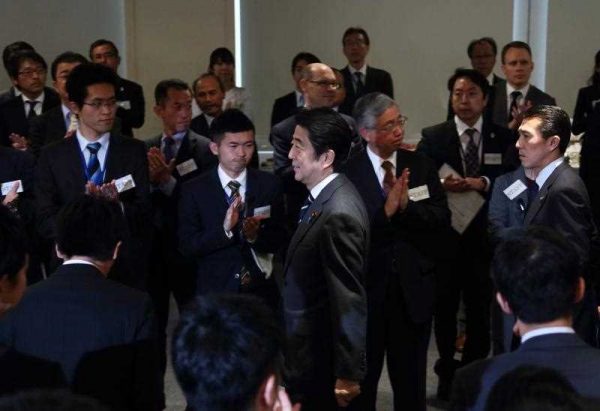Dynastic politicians, whose family members previously held high office, constituted 37 per cent of national legislators in the Philippines in the 2000s. In Thailand, 42 per cent of the members of the House of Representatives elected in 2011 were members of major political dynasties.
In Japan, political dynasties are even more prominent. Within the past two decades, seven out of eleven prime ministers were dynastic politicians. Japan’s Prime Minister Shinzo Abe is the son of Shintaro Abe, a former leading member of the long-ruling Liberal Democratic Party (LDP). Junichiro Koizumi, prime minister between 2001–06, is a third-generation dynast, and his son Shinjiro followed his father into parliament after Junichiro’s retirement in 2008. In fact, about one third of the legislators in the House of Representatives between 1970 and 2000 had relatives who had also served in the Japanese Diet in the past.
So why are dynastic politicians are so commonplace in East Asia? Are they simply ‘good’ politicians, or do they have an unfair advantage over other candidates due to resources inherited from their family members? If dynastic politicians are simply exploiting their unfair advantages, is their presence thus detrimental to democratic governance?
Empirical analysis based on a game theoretical model can help to answer some of these questions. Let’s first consider that dynastic candidates can be expected to enjoy lower costs when running for office and increased bargaining power in parliament once elected compared with non-dynastic candidates. Would a non-dynastic candidate even bother to run for office when she must pit herself against a dynastic candidate? Even if she did, would voters choose her over a dynastic candidate with substantial inherited resources?
The answer to these questions depends on the formidability of dynastic candidates. Suppose that you are a potential candidate who contemplates running against the son of a former prime minister in a single-member electoral district. You would have to raise enormous amounts of money and run a particularly strong campaign in order to offset the dynast’s electoral advantages. The cost of running may thus be too high, which would discourage you and any potential candidate from running.
Of course, not all dynastic candidates are equal. In a district where a dynast inherited less from his dynasty, other candidates might enter a race, which might then result in a competitive election. But the model predicts that dynastic candidates will enjoy a higher probability of winning and a higher vote share. Thus, dynastic candidates will tend to crowd out non-dynastic candidates.
Now, let’s consider the consequences of electing dynastic politicians. Dynastic legislators will bring more money to their district than non-dynastic legislators, thanks to their superior bargaining power in the legislature. But, at the same time, the model also predicts that dynastic politicians will lower the economic performance of their districts. This is because dynastic legislators will distribute these sums only to a small fraction of people instead of directing them to policies that would improve the entire district. Intuitively, this is because dynastic politicians can extract rents for themselves and their supporters due to their strong electoral advantages.
So let’s test these predictions. Using data on members of the Japanese House of Representatives elected between 1996 and 2005, dynastic candidates have enjoyed higher probabilities of winning and a greater vote share. These candidates had a 22 per cent higher probability of winning than non-dynastic candidates. Areas represented by dynastic politicians did receive more fiscal transfers from the national government. Estimates show that municipalities represented by dynastic legislators saw an 11.5 per cent increase in fiscal transfers. But, as predicted, this failed to increase economic growth in the areas represented, especially when dynastic politicians enjoyed substantial electoral advantages. When controlling for other factors, areas represented by dynastic politicians with abundant electoral resources experienced lower rates of GDP growth despite enjoying increased transfer payments.
This means that dynastic politicians may be socially inefficient. Their presence may result in less optimal policies for the districts that they represent because they tend to distribute benefits inefficiently, and this is detrimental to local economic growth despite the increased sums brought into the district. This implies that political dynasties are not necessarily good for us. When next in the voting booth, you might want to think twice before you cast your ballot for a member of a famous political dynasty, even if the family has brought back lots of goodies to the district.
Yasushi Asako is Associate Professor, Waseda University. Takeshi Iida is Associate Professor, Doshisha University. Tetsuya Matsubayashi is Associate Professor, Osaka University. Michiko Ueda is Research Assistant Professor, Syracuse University.
This is an abridged version of a paper originally published in the Japanese Journal of Political Science.


Japanese politicians who stay in the “family business” represent a big drag on change, especially when their fiefs are in conservative, rural areas. This has reinforced collusion and cronyism rooted in their districts and retards the speed of necessary adaptation.
Of course, there is also an impact on history and relations with neighbors. It is really hard for Abe Shinzo to think ill of his grandfather, and Aso Taro is shocked, shocked to learn that his family’s business employed forced labor.